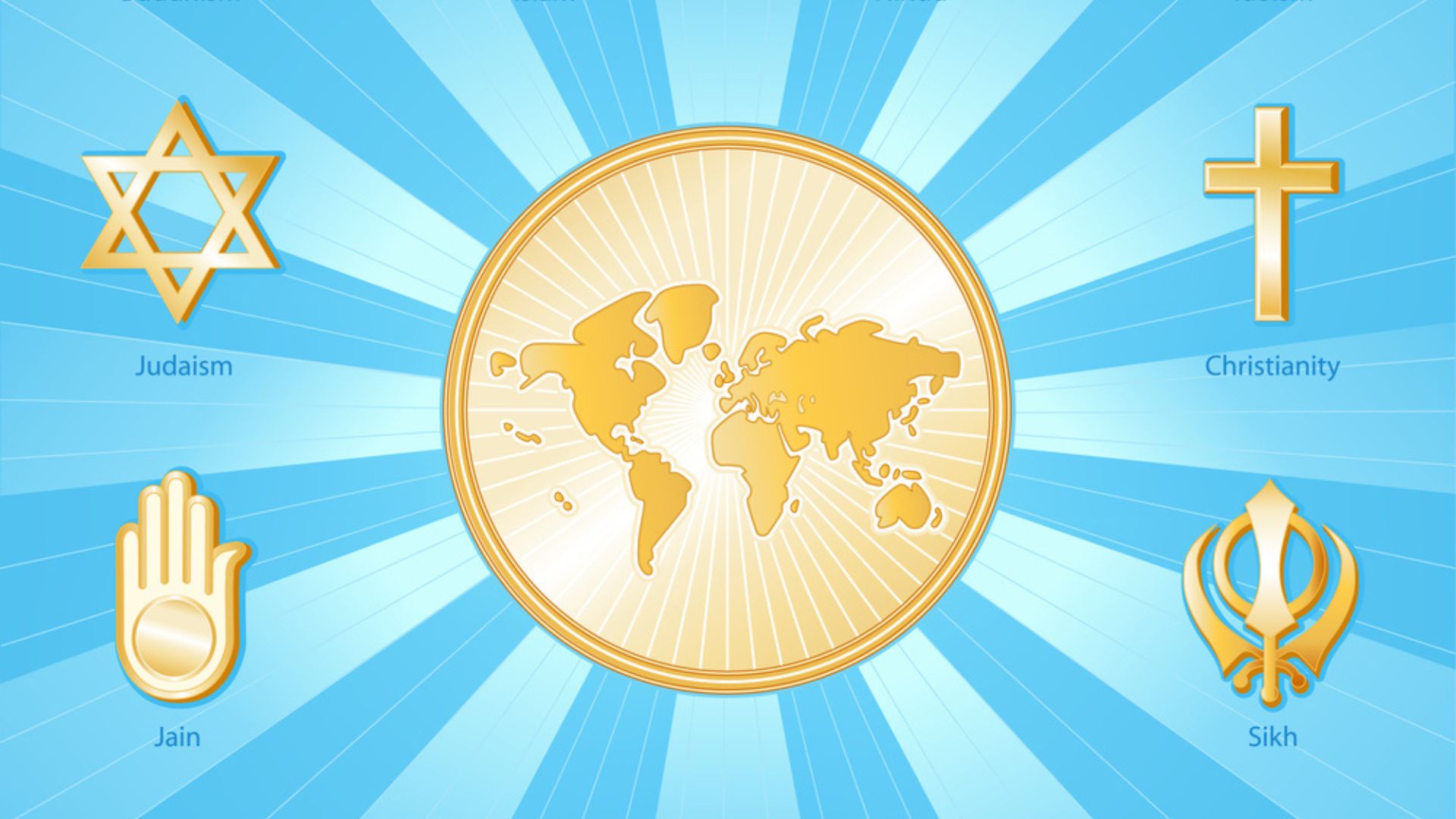
|
Getting your Trinity Audio player ready...
|
The world’s most popular religions offer diverse beliefs and practices that shape billions of lives. The human spirit’s inherent curiosity has led to the exploration of life, existence, and the divine for millennia. This exploration has manifested in various forms, with religion being a prominent one. Across the globe, billions of people adhere to different belief systems, each contributing to the rich tapestry of human experience known as world religions. This article will explain more about the world’s most popular religions and their core beliefs and practices.

1. Christianity
With over 2.4 billion followers, Christianity stands as the world’s largest religion. Founded on the teachings of Jesus Christ, it emphasizes love, compassion, and forgiveness. Key practices include prayer, attending religious services, and following the ethical teachings outlined in the Bible. Christianity has various denominations, including Catholicism, Protestantism, and Eastern Orthodoxy, each with nuanced interpretations of faith.
2. Islam
Islam, the second-largest religion globally, boasts over 1.9 billion followers. It originated in the 7th century with the teachings of Prophet Muhammad, who Muslims believe received divine revelations from God (Allah). The core principles of Islam revolve around five pillars: faith, prayer, charity, fasting during Ramadan, and pilgrimage to Mecca (for those who are able).
3. Hinduism
Hinduism, the world’s oldest religion still practised, is followed by over 1.2 billion people, primarily in India and Nepal. It is a complex and diverse faith with no single founder or set of scriptures. Hinduism emphasizes the cyclical nature of life, rebirth (reincarnation), and the pursuit of moksha (liberation from the cycle of rebirth). Key concepts include karma (the law of cause and effect) and dharma (righteous living).
4. Buddhism
Founded by Siddhartha Gautama, who attained enlightenment and became known as the Buddha, Buddhism has over 500 million followers worldwide. It emphasizes the Four Noble Truths, a framework for understanding suffering and achieving liberation from it. The Eightfold Path provides a practical guide to ethical living, meditation, and mindfulness.
5. Judaism
Judaism, with over 14 million followers, is an Abrahamic monotheistic religion originating in the Middle East. It centres on the belief in one God who established a covenant with the Jewish people. Key aspects of Judaism include adherence to the Torah (the first five books of the Hebrew Bible), observance of Jewish holidays and rituals, and following ethical principles outlined in Jewish law.
6. Other Major Religions
While the five listed above are the most prominent, numerous other significant religions contribute to the global religious landscape. These include:
-
Sikhism
Founded in the 15th century in India, Sikhism emphasizes equality, social justice, and serving others.
-
Confucianism
Founded by Confucius in ancient China, this philosophical and ethical system focuses on social harmony, respect for elders, and personal virtue.
-
Shinto
The indigenous religion of Japan, Shinto reveres spirits (kami) present in nature and emphasizes ritual purity and harmony with nature.
Summary
The article explores the world’s most popular religions, highlighting their core beliefs, practices, and origins. Christianity, with over 2.4 billion followers, is the largest religion, followed by Islam, Hinduism, Buddhism, and Judaism. Each religion has unique characteristics, influencing billions of individuals across the globe. The article also mentions other significant religions, emphasizing the diverse tapestry of faith that contributes to the richness of human experience
Understanding World Religions
Exploring world religions is not about comparing or judging different belief systems. Instead, it is about fostering appreciation for the diversity of human thought and experience. By understanding the core tenets, practices, and historical context of different religions, we can:
-
Promote respect and tolerance
Learning about different faiths allows us to appreciate the richness of human experience and build bridges of understanding across cultures.
-
Challenge stereotypes and biases
Understanding the diversity within religions helps us dismantle stereotypes and generalizations often associated with different faith groups.
-
Engage in meaningful dialogue
Knowledge of different religions allows us to engage in respectful and insightful conversations about faith, values, and shared humanity.
Religion with the Most Followers
